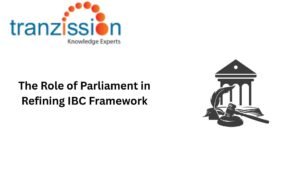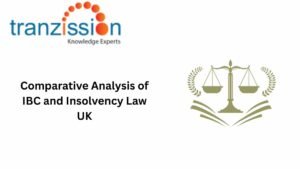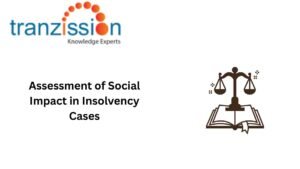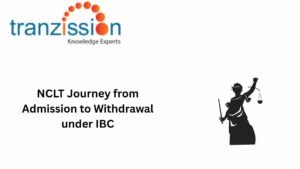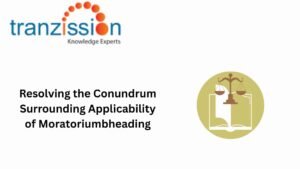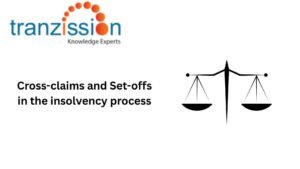
How to become a Registered Valuer under IBBI
Table of Contents
Registered valuers individuals with specific qualifications who play an important role for accurately providing valuation of the corporate debtor’s assets during the resolution process. Insolvency professionals rely on the valuation of the registered valuers to make more informed decisions throughout the insolvency processes.
Who is a registered valuer?
A registered valuer is defined under Regulation 2(1)(f) of the Companies (Registered Valuers and Valuation) Rules, 2017 (here on forward known as the “Rules, 2017”) as a valuer who is registered with the Registration Authority under Rule 7(6) for carrying out valuation of assets belonging to a class or classes of assets.
What are the categories of Registered Valuer on the basis of Assets Class?
There are three categories of registered valuers on the basis of assets class, that is plant and machinery, land and building, and securities or financial assets as per Rules 5 and 6 of the Rules, 2017.
- Plant and Machinery Assets: An individual must be a graduate who has 5 years experience in mechanical, electrical, electronic and communication, electronic and instrumentation, production, chemical, textiles, leather, metallurgy, or aeronautical engineering, or a graduate in valuation of plant and machinery or any equivalent course. An individual instead of this should have 3 years experience after post graduate on the course mentioned before.
- Land and Building Assets: An individual should have either 5 years experience as a graduate in civil engineering, architecture or town planning or any course equivalent; or 4 years experience as a post graduate on the above courses and also in valuation of land and building or real estate valuation.
- Securities or financial assets: To be become a Registered Valuer, an individual must have 3 years experience as a Member of Institute of Chartered Accountants of India, Member of Institute of Company Secretaries of India, Member of the Institute of Cost Accountants of India, Master of Business Administration, or Post graduate diploma in business management having a specialisation in finance, or a postgraduate degree in finance.
Which Act / Rules defines Valuer?
The following Act/ Rules defines the ‘valuer’, their eligibility, qualification, and registration:
- Companies Act, 2013: Sections 247, 458, 459, and 469
- Companies (Registered Valuers and Valuation) Rules, 2017: Regulation 2(1)(f) defines ‘registered valuer’, and their eligibility, qualification, and registration under Chapter II.
How to Become a Registered Valuer?
- The candidate should not be ineligible as per Rule 5 under the Rules, 2017
- The candidate should have the qualifications and experience under Rule 6, including that the individual should have a postgraduate degree, in a specific discipline, from a University, recognised, or incorporated by law in India with at least 3 years of experience, a Bachelor’s degree in a specific discipline, from a University, recognised, or incorporated by law in India at least 5 years experience, or having a membership of a professional institute set up under an Act of Parliament and at least five years’ experience after such membership.
- The candidate must also make an application to the Registration Authority in the relevant Form A or Form B of Schedule II with a non-refundable application of Rs 10,000 in favour of the Registration Authority.
- Upon scrutiny if the Registration Authority is satisfied with application, the applicant must file Form C of the Schedule II.
- After this, the applicant is enrolled with a Registered Valuer Organisation (RVO) recognised by the Insolvency and Bankruptcy Board of India (IBBI).
- It is necessary for the individual to take the Valuation Examination conducted by the Registration Authority to test their knowledge, practical skills and ethics in respect of their valuation according to Rule 4 of the Rules, 2017.
- Once you have passed the examination, the individuals apply for registration within 3 years preceding the date of making an application for registration.
What are the Roles and Responsibilities of IBBI Registered Valuers?
There are no specific provisions which list the roles and responsibilities of an IBBI registered valuers, however the Companies Act, 2013, IBC, and the Rules, 2017, it can be gathered that they:
- Determining the fair value and liquidation value after physical verification of inventory and fixed assets.
- Through market analysis to assess factors, such as supply and demand, industry trends, and economic indicators.
- As valuation of assets include legal, finance, and reputational risks. Hence, registered valuers form risk management practices for mitigating these risks effectively and efficiently.
- Maintaining the ethical standards of their work
- Having up-to-date information and knowledge with the industry trends and regulatory changes.
Read more : Legal Perspective: Personal Insolvency under IBC
What are the Benefits of Being an IBBI Registered Valuer?
The benefits of being an IBBI Registered Valuer including credibility and professional recognition in the relevant field, you will ensure compliance with the regulatory requirements passed by the IBBI, if there is an increased demand for your valuation services, this will also lead to higher income potential, also the opportunity to work on high-profile and bankruptcy cases, and access to network of professionals and continuous professional development.
Conclusion
IBBI Registered valuers make impartial, true, and fair valuation as per the valuation in the rules as prescribed under the Companies (Registered Valuers and Valuation) Rules, 2017.
FAQs
1. What is an IBBI Registered Valuer?
An IBBI Registered Valuer is an individual registered with the Authority according to the Companies (Registered Valuers and Valuation) Rules, 2017.
2. What is a Registered Valuer Organisation (RVO)?
Registered Valuer Organisation was promoted by the Indian CMAI under section 8 of the Companies Act, 2013 for conducting educational courses for the different categories of assets (plant and machinery, land and building, and securities or financial assets.
3. What is the Valuation Examination, and how can I prepare for it?
Valuation Examination is an important step in becoming a registered valuer conducted by the Registration Authority, texting their knowledge, practical skills and ethics of of individuals in respect of valuation.
4. What are the benefits of being an IBBI Registered Valuer?
The benefits of being an IBBI registered valuer includes enhances credibility and professional recognition in the valuation industry, opportunities to work on high-profile insolvency cases, increased demand for valuation services , increased demand for your services, access to a demand to fellow professionals and continuous professional development, and compliance with the rules and regulations,
5. Who is a fit and proper person?
A candidate must be a ‘fit and proper person’ to be eligible to become a registered valuer as per Rule 5(1)(f) of the Rules, 2017. ‘Fit and proper’ persons include those who have the following characteristics, but not limited to: integrity, reputation and character, absence of conviction and restraint orders, and competence including financial solvency and net worth.
6. If a person has been imprisoned for an offence, does it make him ineligible for life to be a Valuer?
No, it does not make him ineligible, disqualified for life to be registered valuer, although under Rule 5(1)(g) of Rules, 2017 it has been stated that a person who has been convicted by any competent court for an offence punishable with imprisonment for a ter exceeding 6 months or an offence involving moral turpitude, and a period of 5 years has not elapsed from the date of expiry of the sentence. However it should be noted, that the person has been convicted of any offence and sentenced to imprisonment for a period of 7 years or more, he shall not be eligible to be registered.
7. Does an applicant need registration to undertake valuation?
As per the Rules,, 2017, requires that only a person registered with the IBBI as a registered valuer can conduct valuations required under the Companies Act, 2013 and the IBC with effect from 01.02.2019.
8.What valuation work can a person do without registration?
With effect from 1st February, 2019, only registered valuers can undertake valuation under Companies Act, 2013 and the IBC. Nonetheless, any person, whether registered or unregistered, may continue to render valuation services under any other law which has not stipulated requirement for valuation to be undertaken by a registered valuer.
9. What work can a registered valuer undertake?
A registered valuer can evaluate the worth of assets, properties, or business operation of the corporate debtor in order to provide the insolvency professionals invaluable insights to make informed decisions during the resolution process.
10. Registered valuers are registered for how many asset classes?
Registered valuers are registered for three assets classes: land and building, plant and machinery, and securities and financial assets.
11. Can a Registered Valuer for one asset class register for another asset class?
Yes, a registered valuer for one asset class register for another asset class, however it is necessary to meet the eligibility criteria for the said assets.
12. Can an applicant be registered as a valuer for all asset classes?
Yes, an applicant can be registered as a valuer for all asset classes, provided that they have the necessary qualifications and experience under the Rules, 2017.
13. Can an applicant be registered directly by the Authority?
No, an applicant cannot seek direct registration with the Authority and needs to comply with the process for registration according to the IBC and Rules, 2017.
14. How can an applicant select RVO for enrolment?
The applicant can seek the membership under the Registered Valuer Organisation (RVO), the details are displayed on the IBBI website. However, the applicant may seek membership of those RVOs which are recognised for the assets class, for which he intends to take registration with.
15. Can a registered valuer shift his membership from one RVO to another?
Yes, a registered valuer can shift his membership from one RVO to another with prior permission of the IBBI according to Circular No. IBBI/RVO/029/2020.

